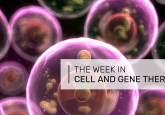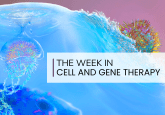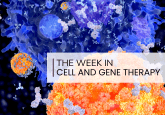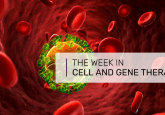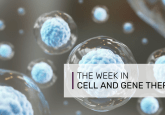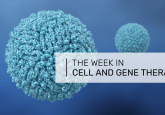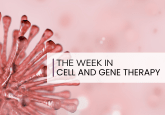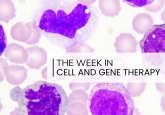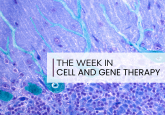Cell therapy weekly: FDA approves first cell therapy for solid tumors Copy
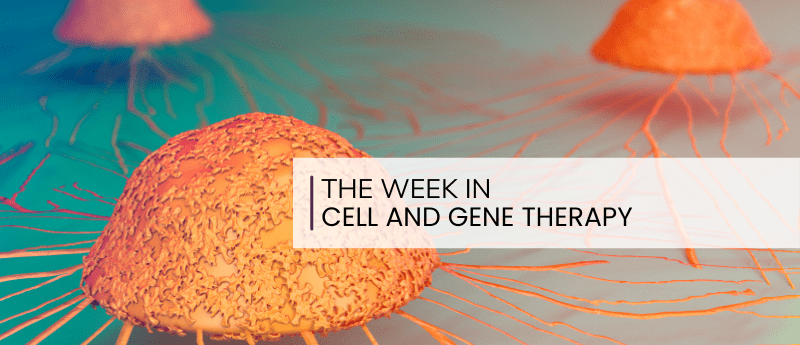
This week: The US Food and Drug Administration (FDA; MD, USA) has approved the first cell therapy for a solid tumor, MIP Discovery (Bedford, England) secured £7 million in Series A financing to drive commercialization of novel synthetic affinity reagents within the cell and gene therapy space and Charles River Laboratories International (MA, USA) has expanded its portfolio of human pluripotent stem cells through a collaboration with Pluristyx (WA, USA).
The news highlights:
- FDA approves first T-cell therapy for solid tumors
- MIP Discovery secures £7 million in Series A funding
- Charles River expands its portfolio of human pluripotent stem cells through collaboration with Pluristyx
FDA approves first cell therapy for solid tumors
The US FDA has granted accelerated approval for AMTAGVI™ (lifileucel), a novel cell therapy for advanced melanoma. This is the first cell therapy to be approved by the FDA for the treatment of a solid tumor.
AMTAGVI utilizes a population of immune cells called tumor-infiltrating lymphocytes (TILs). These cells are created by the immune system in response to cancer and they can recognize distinctive tumor markers and penetrate into the tumor. To manufacture AMTAGVI, TILs are isolated from a portion of a patient’s resected tumor and expanded ex vivo before being reinfused back into the patient to fight their cancer. AMTAGVI effectively replenishes the body with these anti-cancer immune cells, compensating for the diminished efficacy of naturally occurring TILs over time.
“This landmark FDA approval reflects significant advancements in TIL cell therapy since we initially showed that TIL cells isolated from patients with metastatic melanoma could be expanded in the lab and returned to the patient to mediate cancer regression,” said Steven Rosenberg, Chief of Surgery Branch at the National Cancer Institute (MD, USA). “This approval is transformative for the entire research field and supports continued investigation of TIL cell therapy across additional types of solid tumors.”
MIP Discovery secures £7 million in Series A funding
MIP Discovery, a developer of synthetic affinity reagents for cell and gene therapies, has raised £7 million in a Series A financing. The investment will be utilized to advance the commercialization of the company’s synthetic affinity reagents, collaborating with industry leaders to develop tools for critical applications. Additionally, funds will support recruitment efforts to expand MIP Discovery’s in-house expertise in cell and gene therapy.
The company’s non-biological affinity reagents offer solutions for a range of cell and gene therapy applications, including viral vector characterization, purification, safety and quality control processes, such as impurity detection and removal.
Stephane Argivier, CEO of MIP Discovery, stated: “Securing funding for a novel reagents company in today’s investment landscape demonstrates clear confidence in MIP Discovery’s technology and renewed commercial strategy. Our proprietary modeling approach to developing synthetic antibody alternatives has already been successful for diagnostic applications, and we have already seen very encouraging traction for our expertise in the cell and gene therapy space.”
Charles River expands its portfolio of human pluripotent stem cells through collaboration with Pluristyx
Charles River has partnered with Pluristyx, a provider of tools, technologies and services for cell therapy development. This collaboration grants Charles River access to Pluristyx’s unique and highly characterized stem cell lines, including embryonic stem cells and induced pluripotent stem cells (iPSCs).
Under the terms of the agreement, Charles River will distribute Pluristyx’s embryonic stem cells and iPSC cell lines for research purposes, supplementing Charles River’s portfolio of human cellular materials and enhancing its research capabilities for new therapeutics.
CEO of Pluristyx, Benjamin Fryer, stated: “We are honored to work with Charles River as a worldwide distributor of our pluripotent stem cells, including our genetically modified iPSCs that provide an accelerated path to the clinic with development of safer cell therapies. Through this agreement, we can continue our mission to rapidly advance development of next-generation therapies.”
Cell therapy weekly: FDA approves first cell therapy for solid tumors

This week: The US Food and Drug Administration (FDA; MD, USA) has approved the first cell therapy for a solid tumor, MIP Discovery (Bedford, England) secured £7 million in Series A financing to drive commercialization of novel synthetic affinity reagents within the cell and gene therapy space and Charles River Laboratories International (MA, USA) has expanded its portfolio of human pluripotent stem cells through a collaboration with Pluristyx (WA, USA).
The news highlights:
- FDA approves first T-cell therapy for solid tumors
- MIP Discovery secures £7 million in Series A funding
- Charles River expands its portfolio of human pluripotent stem cells through collaboration with Pluristyx
FDA approves first cell therapy for solid tumors
The US FDA has granted accelerated approval for AMTAGVI™ (lifileucel), a novel cell therapy for advanced melanoma. This is the first cell therapy to be approved by the FDA for the treatment of a solid tumor.
AMTAGVI utilizes a population of immune cells called tumor-infiltrating lymphocytes (TILs). These cells are created by the immune system in response to cancer and they can recognize distinctive tumor markers and penetrate into the tumor. To manufacture AMTAGVI, TILs are isolated from a portion of a patient’s resected tumor and expanded ex vivo before being reinfused back into the patient to fight their cancer. AMTAGVI effectively replenishes the body with these anti-cancer immune cells, compensating for the diminished efficacy of naturally occurring TILs over time.
“This landmark FDA approval reflects significant advancements in TIL cell therapy since we initially showed that TIL cells isolated from patients with metastatic melanoma could be expanded in the lab and returned to the patient to mediate cancer regression,” said Steven Rosenberg, Chief of Surgery Branch at the National Cancer Institute (MD, USA). “This approval is transformative for the entire research field and supports continued investigation of TIL cell therapy across additional types of solid tumors.”
MIP Discovery secures £7 million in Series A funding
MIP Discovery, a developer of synthetic affinity reagents for cell and gene therapies, has raised £7 million in a Series A financing. The investment will be utilized to advance the commercialization of the company’s synthetic affinity reagents, collaborating with industry leaders to develop tools for critical applications. Additionally, funds will support recruitment efforts to expand MIP Discovery’s in-house expertise in cell and gene therapy.
The company’s non-biological affinity reagents offer solutions for a range of cell and gene therapy applications, including viral vector characterization, purification, safety and quality control processes, such as impurity detection and removal.
Stephane Argivier, CEO of MIP Discovery, stated: “Securing funding for a novel reagents company in today’s investment landscape demonstrates clear confidence in MIP Discovery’s technology and renewed commercial strategy. Our proprietary modeling approach to developing synthetic antibody alternatives has already been successful for diagnostic applications, and we have already seen very encouraging traction for our expertise in the cell and gene therapy space.”
Charles River expands its portfolio of human pluripotent stem cells through collaboration with Pluristyx
Charles River has partnered with Pluristyx, a provider of tools, technologies and services for cell therapy development. This collaboration grants Charles River access to Pluristyx’s unique and highly characterized stem cell lines, including embryonic stem cells and induced pluripotent stem cells (iPSCs).
Under the terms of the agreement, Charles River will distribute Pluristyx’s embryonic stem cells and iPSC cell lines for research purposes, supplementing Charles River’s portfolio of human cellular materials and enhancing its research capabilities for new therapeutics.
CEO of Pluristyx, Benjamin Fryer, stated: “We are honored to work with Charles River as a worldwide distributor of our pluripotent stem cells, including our genetically modified iPSCs that provide an accelerated path to the clinic with development of safer cell therapies. Through this agreement, we can continue our mission to rapidly advance development of next-generation therapies.”
